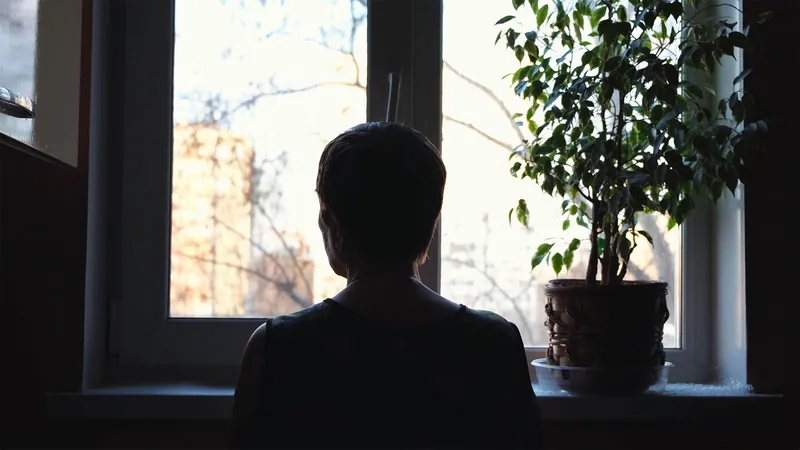
Alarming Link Between Social Isolation and Increased Mortality Risk in Older Adults with COPD Revealed
2024-11-05
Author: Li
Recent research has unveiled a concerning correlation between social isolation and heightened mortality risk among older adults suffering from chronic obstructive pulmonary disease (COPD).
A retrospective cohort study conducted by Dr. Angela O. Suen and her team at the University of California, San Francisco, has shown that individuals aged 51 and older with COPD who are socially isolated face a significantly increased risk of death compared to their socially connected peers.
The study findings
The study, published in JAMA Internal Medicine, indicates that socially isolated participants had an adjusted hazard ratio (HR) for mortality of 1.35 (with a confidence interval of 1.04-1.75). This staggering statistic suggests that the lack of social connections could considerably shorten the lifespan of these vulnerable individuals.
On average, median survival time for those in isolation was found to be just 7 years, compared to 9.1 years for those with social connections. Furthermore, the 5-year survival rate for isolated patients was a worrying 62.9%, versus 71.1% for the non-isolated group.
Impact of Social Isolation
The research further highlights that social isolation in older adults aligns with detrimental health outcomes typically associated with various life-limiting conditions, such as critical illnesses and severe heart failure.
Strikingly, about 20% of individuals with COPD report experiencing social isolation, which may stem from diminished physical capabilities and persistent breathlessness.
Challenging previous studies
The findings challenge previous studies which suggested a milder association between social isolation and the risk of mortality in the COPD population. Prior research indicated a difference in 5-year survival rates between isolated and non-isolated adults at 93% and 95%, respectively.
The new analysis suggests that the earlier results may have underplayed the severity of isolation's impact on health.
Theoretical Underpinnings
Experts theorize that increased mortality may arise from the lack of support systems necessary for managing COPD symptoms, such as breathlessness and complex medication regimens.
Recommendations and Future Inquiry
To combat this growing issue, the authors recommend expanding interdisciplinary efforts aimed at reducing social isolation through various initiatives, including group-based pulmonary rehabilitation, support groups, and community meal and exercise programs.
Dr. Suen emphasizes the importance of healthcare providers routinely inquiring about patients’ social connections as part of their COPD management strategy. “While we’ve yet to determine if interventions targeting social isolation can positively influence COPD outcomes, this remains a vital area for future inquiries,” she stated.
Study Methodology
The study analyzed data collected from the Health and Retirement Survey (HRS), which follows adults aged 51 and older biennially until their passing.
Social isolation was determined using a scale that accounted for marital status, living alone, lack of contact with family and friends, and non-participation in community activities.
Participant Statistics
Out of 1,241 participants—averaging 68.4 years of age, with 59.3% identifying as female—23.6% reported being socially isolated. The median follow-up period was approximately 4.4 years, during which 43.4% of participants succumbed.
Study Limitations
It's crucial to note the study's limitations, including the reliance on self-reported data for COPD, which could inadvertently include other chronic lung conditions like interstitial lung disease.
As the aging population continues to grow, understanding and addressing social isolation's ramifications on health becomes increasingly urgent.
Call to Action
Are you or a loved one experiencing social isolation? Discover the hidden dangers it poses to your health!




 Brasil (PT)
Brasil (PT)
 Canada (EN)
Canada (EN)
 Chile (ES)
Chile (ES)
 España (ES)
España (ES)
 France (FR)
France (FR)
 Hong Kong (EN)
Hong Kong (EN)
 Italia (IT)
Italia (IT)
 日本 (JA)
日本 (JA)
 Magyarország (HU)
Magyarország (HU)
 Norge (NO)
Norge (NO)
 Polska (PL)
Polska (PL)
 Schweiz (DE)
Schweiz (DE)
 Singapore (EN)
Singapore (EN)
 Sverige (SV)
Sverige (SV)
 Suomi (FI)
Suomi (FI)
 Türkiye (TR)
Türkiye (TR)